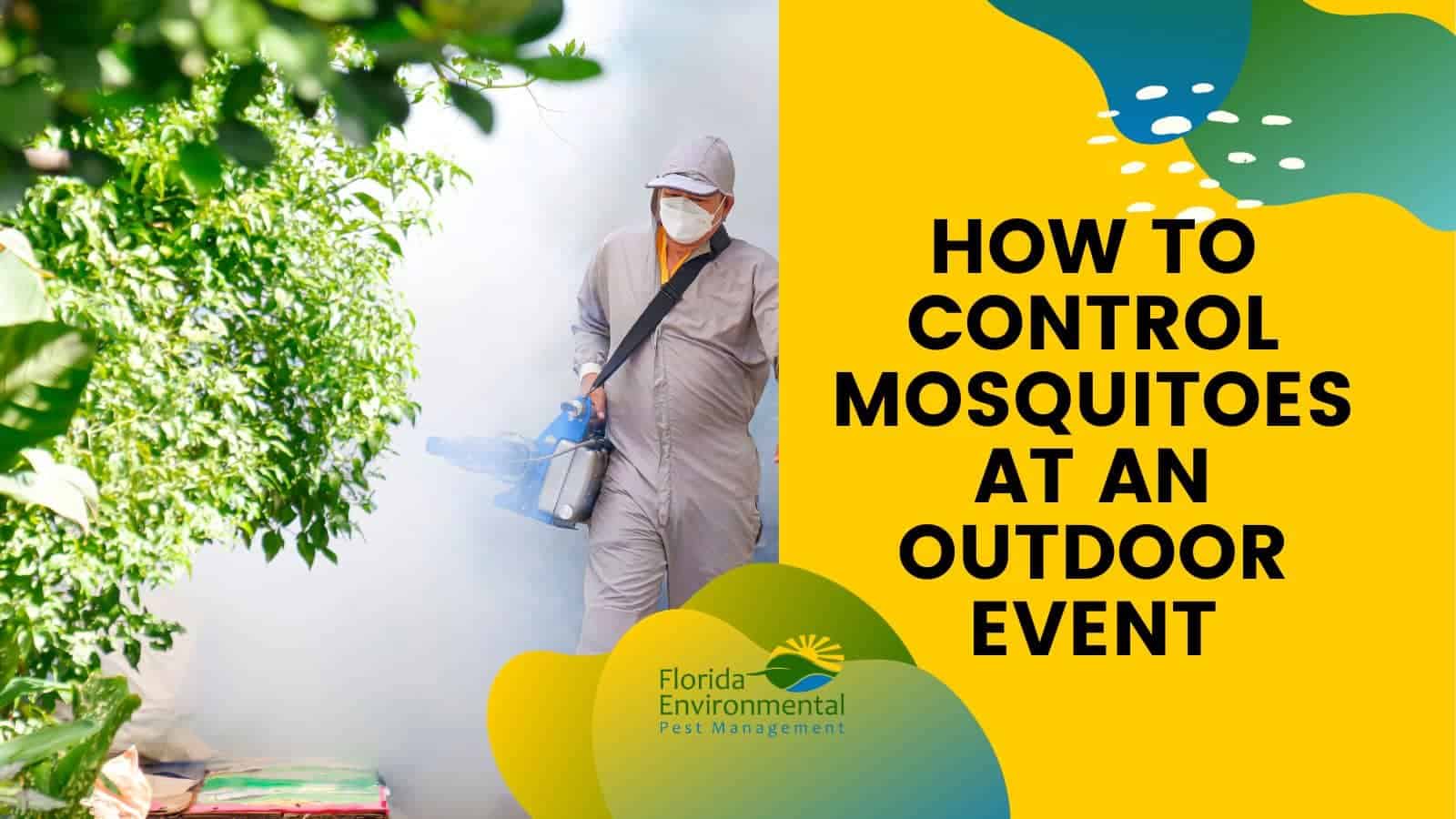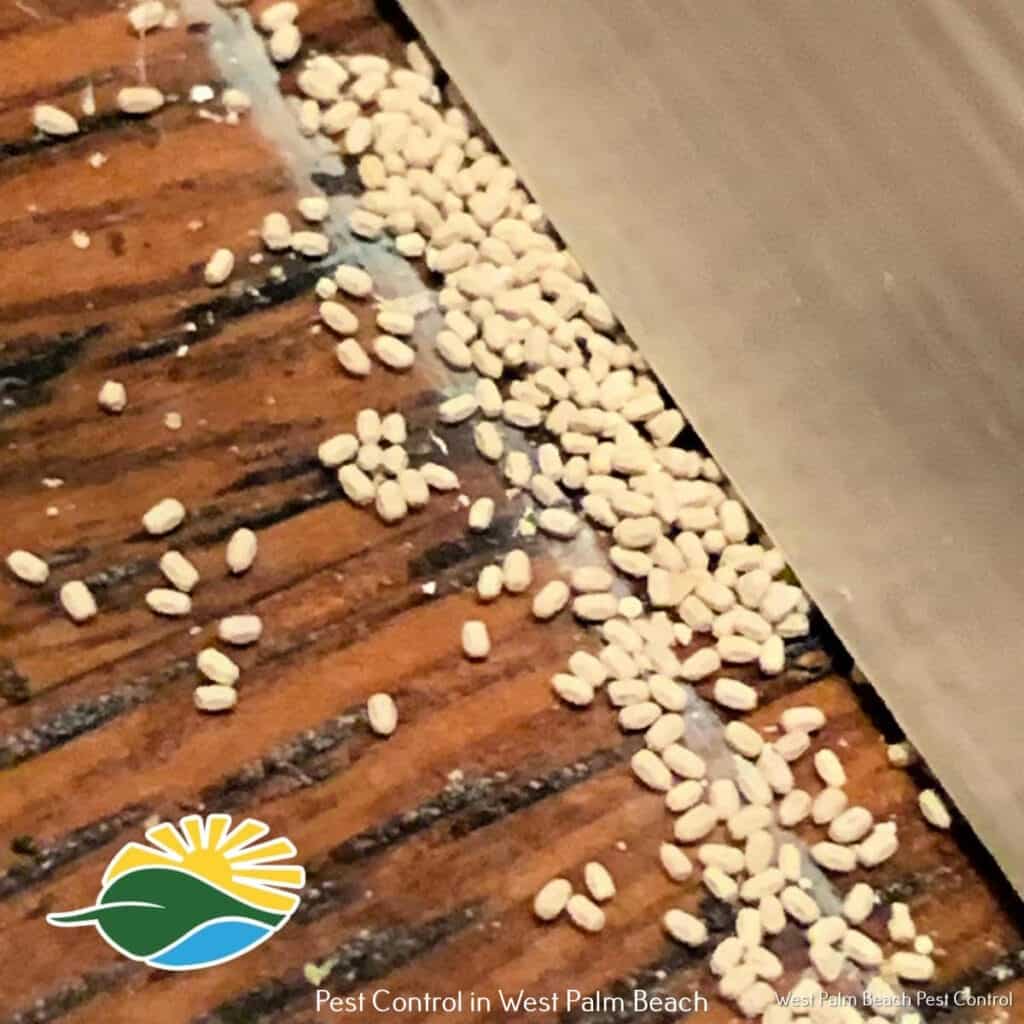We can all agree that outdoor events hit differently, but mosquitoes like to show up and spoil the fun. These bloodsucking insects can quickly turn your outdoor event into an itchy and uncomfortable affair.
Fortunately, there are effective ways to control mosquitoes when planning an outdoor event. Some of these are the use of mosquito repellent products, nets, etc. These temporary options protect you and your guests from mosquito bites and the diseases they transmit.
If you’re looking for ways to control mosquitoes and create a more pleasant outdoor experience for your guests, there are many of them, and we’ve taken the time to explain them in this article.
Why Mosquito Control Is Important For An Outdoor Event
When planning an outdoor event, you want all your guests to be comfortable and enjoy being outdoors, and mosquitoes can be a problem. This is why you must incorporate mosquito control into your event planning. Here are four reasons you shouldn’t tolerate mosquitoes within your environment and where you’re holding your event.
1. Nuisance Reduction
Mosquitoes can be a significant nuisance, causing discomfort and annoyance for event attendees. Their incessant buzzing and painful bites can significantly detract from the overall enjoyment of the event. Uncomfortable guests are less likely to have a positive experience, and this can impact the event’s success and reputation.
2. Health Protection
One of the most notorious diseases transmitted by mosquitoes is malaria, caused by the Plasmodium parasite. It is one of the deadliest mosquito-borne diseases globally, leading to high fever and chills, and if left untreated, it can be fatal. Malaria predominantly affects people in tropical and subtropical regions, causing immense health burdens.
Other diseases include West Nile virus, Zika virus, and Dengue fever. These mosquito-borne diseases, along with others like filariasis, Japanese encephalitis, and heartworm in pets, underscore the importance of mosquito control.
3. Peak Mosquito Activity
Mosquitoes are most active during specific times and under certain conditions, which can significantly impact the risk of mosquito-borne diseases and the comfort of outdoor activities. Outdoor events often coincide with peak mosquito activity, making control measures essential.
4. Responsible Planning
Incorporating mosquito control into event planning demonstrates responsible event management. It means you prioritize the comfort and safety of your attendees, ensuring a more enjoyable experience.
How Can I Control Mosquitoes At An Outdoor Event?
To control mosquitoes at an outdoor event, consider using mosquito repellent products for guests and strategically placing citronella candles or torches around the event area. These measures will help deter mosquitoes and create a more comfortable environment for attendees.
While long-term mosquito control methods involve habitat modification and chemical treatments, several quick-fix temporary solutions can help you keep these unwanted guests at bay and ensure your outdoor event is a success.
1. Mosquito Repellent Products
One of the most straightforward ways to keep mosquitoes away from your event is by providing mosquito-repellent products for your guests. You can set up stations with mosquito repellent sprays, lotions, or wipes so that attendees can easily apply protection. These products contain ingredients like DEET, picaridin, or natural repellents like citronella. Make sure to include signage or announcements to let your guests know about these stations.
2. Citronella Candles And Torches
Citronella candles and torches are popular choices for outdoor events. Citronella is a natural repellent that emits a scent that mosquitoes find unpleasant, which helps deter them. Place citronella candles and torches strategically around the event area, especially near seating and food areas. They not only serve as effective mosquito repellents but also add to the ambience with their soft, flickering light.
3. Mosquito Nets And Screens
Consider using mosquito nets and screens to create designated mosquito-free zones. You can set up netted canopies or tents to provide an enclosed, mosquito-free space for guests to relax or dine. Similarly, you can use screens to enclose dining areas or food preparation areas to keep mosquitoes out. Ensure that these zones are well-ventilated to prevent overheating.
4. Fans And Air Circulation
Mosquitoes are weak fliers, and a breeze can make it challenging for them to approach your guests. Installing fans or other air circulation devices can help disrupt their flight patterns and make it more difficult for mosquitoes to land on people. Place fans strategically around seating areas and near food to create a mosquito-repelling airflow.
5. Mosquito Traps
Mosquito traps, such as propane-powered traps, can be effective at luring and trapping mosquitoes away from your event area. These devices emit carbon dioxide and other attractants to mimic human breath and body heat, drawing mosquitoes into the trap where they are captured or killed. Place these traps around the perimeter of your event space to reduce mosquito numbers.
6. Eliminate Standing Water
Mosquitoes breed in standing water, so it’s crucial to eliminate any potential breeding sites in the vicinity of your event. Empty or cover containers that can collect rainwater, such as flower pots, buckets, and tarps. Ensure that gutters and drains are functioning correctly to prevent water accumulation.
7. Timing Of The Event
Consider scheduling your outdoor event during times when mosquito activity is lower. Mosquitoes are most active during dawn and dusk, so hosting your event during the daytime or later in the evening can reduce the chances of mosquito interference.
8. Reduce Attractants
Mosquitoes are attracted to certain scents, such as perfumes and scented lotions, as well as dark-colored clothing. Encourage your guests to avoid using strongly scented products and opt for lighter-colored attire to minimize their attractiveness to mosquitoes.
What Are Common Methods To Control Mosquitoes?
There are many methods for controlling mosquitoes, and some of them include the use of chemical methods like insecticides or larvicides to kill mosquito larvae and adults. There are also integrated mosquito management methods, which often combine several control methods to reduce mosquito populations.
Some methods are quick fixes and are very effective when planning outdoor events, but some are more sustainable.
Here are some of the mosquito control methods that can keep mosquitoes away from your yard and surrounding environment.
Chemical Control For Mosquitoes
Chemical control involves the use of insecticides to kill or repel mosquitoes. This method is often employed in outdoor areas where mosquito populations are high and the risk of mosquito-borne diseases is significant.
Spraying: Mosquito control agencies may use ground-based or aerial spraying of insecticides to target adult mosquitoes. These insecticides are designed to disrupt the nervous system of mosquitoes, leading to their death. This method is effective for reducing mature mosquito populations but may have environmental concerns.
Larvicides: Larvicides are chemicals applied to water sources where mosquito larvae breed. They prevent larvae from developing into adult mosquitoes. This method is environmentally friendlier and targets mosquitoes at an earlier life stage, reducing the overall population.
Personal Repellents: Individuals can apply mosquito repellents containing active ingredients like DEET, picaridin, or oil of lemon eucalyptus directly to their skin or clothing. These repellents deter mosquitoes from biting and provide personal protection.
Pros of Chemical Control for Mosquitoes
- Offers rapid results
- Ensures targeted approach
- They are scalable.
Physical Control For Mosquitoes
Physical control methods aim to prevent mosquitoes from accessing breeding sites or biting humans. These methods are typically non-toxic and environmentally friendly.
Mosquito Nets: Mosquito nets, whether hung over beds or worn as clothing, create a physical barrier that prevents mosquitoes from reaching their target. They are particularly effective in preventing mosquito bites during sleep.
Screens and Barriers: Installing screens on doors and windows keeps mosquitoes out of indoor spaces. Additionally, using outdoor barriers like mosquito curtains or tents can create mosquito-free zones for outdoor events and activities.
Mosquito Traps: Various mosquito traps are available that use attractants like carbon dioxide, heat, and light to lure mosquitoes into a trap where they are either captured or killed. These traps can reduce local mosquito populations.
Pros Of Physical Control For Mosquitoes
- They are environmentally friendly.
- They are sustainable for a longer time.
- Many physical control methods can be targeted specifically at mosquito larvae or adult mosquitoes, minimizing the impact on non-target species.
Cons Of Physical Control For Mosquitoes
- Some physical control methods, such as mosquito nets or screens, can be effective in specific settings but may not provide comprehensive control in larger areas.
- Implementing physical control measures like habitat modification or installing traps can be labour-intensive and require ongoing maintenance.
- Physical control methods can be expensive due to the need for equipment, infrastructure, and ongoing operational expenses.
- Some physical control methods may take time to show significant results.
- Certain physical control methods, such as draining large wetlands, may not be practical or feasible in all situations.
Professional Mosquito Control Services
If you’re planning an outdoor event and are worried about mosquitoes, consider hiring our experts to control them for a short time before your event.
We’ll examine the environment or event center and come up with the perfect solution for you. Whether it’s to spread special chemicals or offer more sustainable solutions, our team will handle that with excellence. Contact Florida environmental Pest Management today.





